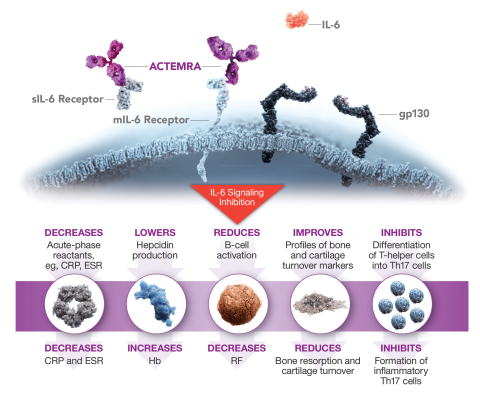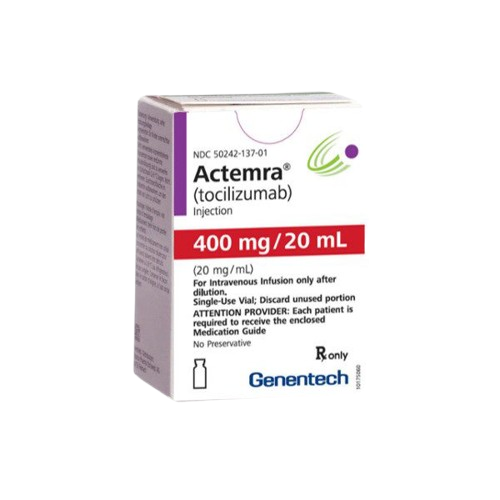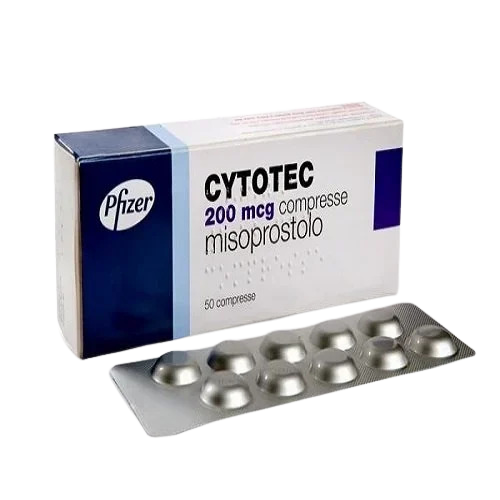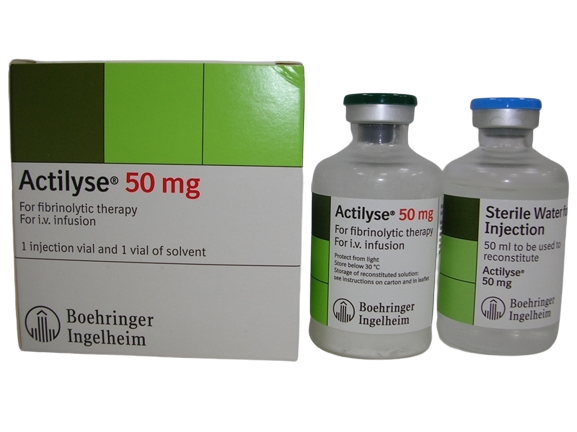Actemra 20 mg/ml (Tocilizumab) 400 mg / 20 ml Imported Available In Pakistan
Actemra (Tocilizumab) is available in Pakistan as an injectable solution, specifically in a concentration of 20 mg/ml, with a total volume of 400 mg per 20 ml vial. This medication is primarily used for the treatment of conditions such as rheumatoid arthritis and cytokine release syndrome.
Original price was: ₨45,000.00.₨39,999.00Current price is: ₨39,999.00.
Description
Actemra (Tocilizumab) is available in Pakistan as an injectable solution, specifically in a concentration of 20 mg/ml, with a total volume of 400 mg per 20 ml vial. This medication is primarily used for the treatment of conditions such as rheumatoid arthritis and cytokine release syndrome.
Key Benefits of Actemra (Tocilizumab)
Actemra, a biologic medication, is primarily used for its anti-inflammatory properties in treating various autoimmune conditions. Here are the key benefits:
- Reduces Inflammation: Actemra blocks interleukin-6 (IL-6), a cytokine involved in inflammatory responses, thereby reducing inflammation and associated symptoms in conditions like rheumatoid arthritis (RA) and giant cell arteritis (GCA)
- Improves Joint Function: In patients with RA, it helps prevent joint damage and improves overall physical function
- Treats Severe Conditions: Actemra is effective in treating severe forms of juvenile idiopathic arthritis (PJIA, SJIA) and cytokine release syndrome (CRS)
- COVID-19 Treatment: It has been approved for use in specific adult patients with COVID-19 to reduce inflammation associated with the disease
- Flexible Administration: Available as both intravenous infusion and subcutaneous injection, allowing for tailored treatment plans based on patient needs
Key Ingredients of Actemra
Actemra contains the following key ingredients:
- Active Ingredient:
- Tocilizumab: The primary active ingredient that functions as an IL-6 receptor antagonist.
- Inactive Ingredients (for intravenous formulation):
- Disodium phosphate dodecahydrate
- Sodium dihydrogen phosphate dihydrate
- Polysorbate 80
- Sucrose
- Water for Injection
-
Mechanism of Action of Actemra (Tocilizumab)
Actemra (Tocilizumab) is a humanized monoclonal antibody that specifically targets the interleukin-6 receptor (IL-6R). The mechanism of action involves several key processes:
- IL-6 Inhibition: Tocilizumab binds to both soluble and membrane-bound IL-6 receptors, preventing the cytokine IL-6 from activating its receptor. This blockage inhibits IL-6-mediated signaling pathways that are crucial in promoting inflammation and immune responses associated with various autoimmune diseases, such as rheumatoid arthritis and giant cell arteritis
- Reduction of Inflammatory Mediators: By inhibiting IL-6 signaling, Tocilizumab reduces the production of inflammatory mediators, including C-reactive protein (CRP) and serum amyloid A. This leads to decreased inflammation and alleviation of symptoms in conditions characterized by excessive IL-6 levels
- Impact on Immune Response: IL-6 plays a significant role in the activation of T-cells and B-cells, as well as in the induction of immunoglobulin secretion. By blocking IL-6, Tocilizumab helps to modulate the immune response, reducing the overactivity that can lead to tissue damage in autoimmune conditions
- Clinical Applications: The inhibition of IL-6 signaling is particularly beneficial in treating conditions like rheumatoid arthritis, where elevated levels of IL-6 contribute to joint inflammation and damage. Tocilizumab’s ability to reduce these levels helps improve patient outcomes by slowing disease progression and improving joint function

-
Key Precautions for Actemra (Tocilizumab)
When using Actemra, it is essential to consider several precautions to ensure patient safety and treatment efficacy:
- Active Infections: Actemra should not be administered during active infections, as it can increase the risk of worsening the infection. Patients should be monitored for signs of infection throughout treatment
- Laboratory Monitoring: Regular monitoring of blood cell counts (neutrophils and platelets) and liver function tests is recommended. Patients with low absolute neutrophil counts (ANC) or elevated liver enzymes should have their treatment modified or discontinued
- Hypersensitivity Reactions: There is a risk of serious hypersensitivity reactions, including anaphylaxis. Patients should be monitored for any allergic reactions during treatment
- Gastrointestinal Perforation: Caution is advised in patients with a history of gastrointestinal issues, as there is an increased risk of gastrointestinal perforation
- Vaccinations: Live vaccines should be avoided while on Actemra therapy. Patients should discuss vaccination schedules with their healthcare provider before starting treatment
- Pregnancy and Breastfeeding: The safety of Actemra during pregnancy and breastfeeding has not been established. It is recommended that women who are pregnant or planning to become pregnant discuss potential risks with their healthcare provider. Breastfeeding is also discouraged during treatment
Dietary Restrictions
While there are no specific dietary restrictions associated with Actemra, the following general recommendations may help manage potential side effects:
- Avoid Alcohol: Limiting alcohol intake can help reduce the risk of liver damage, especially since Actemra can elevate liver enzymes
- Healthy Diet: A balanced diet rich in fruits, vegetables, whole grains, and lean proteins can support overall health and immune function. This is particularly important as Actemra may suppress the immune system.
- Hydration: Maintaining adequate hydration is important for overall health and can help mitigate some side effects associated with medication.
-
Foods to Avoid When Using Actemra (Tocilizumab)
When taking Actemra, patients are advised to be cautious about certain foods due to the medication’s immunosuppressive effects, which can increase the risk of infections and foodborne illnesses. Here are specific foods and dietary considerations to keep in mind:
- Raw or Undercooked Foods:
- Raw Eggs: Avoid any dishes containing raw or lightly cooked eggs, as they may harbor harmful bacteria.
- Undercooked Meat: Ensure all meats (beef, poultry, pork) are thoroughly cooked to eliminate pathogens.
- Unpasteurized Dairy Products:
- Soft Cheeses: Mold-ripened soft cheeses (e.g., Brie, Camembert) should be avoided due to the risk of listeria infection. Opt for hard cheeses made from pasteurized milk instead.
- Unpasteurized Milk and Juices: These products can contain harmful bacteria; always choose pasteurized options.
- Raw Sprouts:
- Alfalfa and Other Sprouts: Raw sprouts can be a source of bacterial contamination; it’s safer to avoid them altogether.
- Certain Fish:
- Raw Fish: Sushi and sashimi made from raw fish can pose a risk of foodborne illness. Cooked seafood is a safer alternative.
- High-Risk Foods for Infections:
- Foods that are more likely to carry bacteria or fungi should be minimized, especially if they are not prepared in hygienic conditions.
General Dietary Recommendations
- Maintain Good Food Hygiene: Always wash hands before cooking and ensure proper food storage.
- Consult Healthcare Providers: Discuss any specific dietary restrictions with your healthcare provider or a registered dietitian, especially if you have other underlying health conditions.
- Alcohol Consumption: While not strictly prohibited, it’s advisable to discuss alcohol intake with your healthcare provider, as it may interact with your treatment or exacerbate side effects.
-
Foods That Can Enhance the Effectiveness of Actemra (Tocilizumab)
While there are no specific foods that directly enhance the effectiveness of Actemra, a well-balanced diet can support overall health and may help mitigate inflammation and improve the immune response. Here are some food categories and specific items that can be beneficial:
1. Anti-Inflammatory Foods
- Fatty Fish: Rich in omega-3 fatty acids, which have anti-inflammatory properties. Examples include salmon, mackerel, sardines, and trout.
- Fruits and Vegetables: Aim for a variety of colors to maximize nutrient intake. Berries, cherries, oranges, spinach, and kale are particularly high in antioxidants and vitamins that can help reduce inflammation.
- Nuts and Seeds: Walnuts, flaxseeds, and chia seeds are excellent sources of omega-3s and other nutrients that support heart health and may reduce inflammation.
2. Whole Grains
- Brown Rice, Quinoa, and Oats: These foods are high in fiber, which can help reduce levels of C-reactive protein (CRP), a marker of inflammation.
3. Legumes
- Beans and Lentils: High in protein and fiber, legumes can support overall health and help maintain stable blood sugar levels.
4. Herbs and Spices
- Ginger and Turmeric: Both have potent anti-inflammatory properties. Incorporating these into meals can provide additional health benefits.
5. Healthy Fats
- Olive Oil: Extra virgin olive oil is rich in monounsaturated fats and antioxidants, making it a heart-healthy choice that may also have anti-inflammatory effects.
6. Hydration
- Water: Staying well-hydrated is essential for overall health. Herbal teas can also be beneficial due to their antioxidant properties.
Dietary Patterns
- Mediterranean Diet: Following a Mediterranean diet, which emphasizes whole foods such as fruits, vegetables, whole grains, fish, nuts, and healthy fats like olive oil, has been associated with lower inflammation levels and improved health outcomes in individuals with rheumatoid arthritis.
-
Dosage
Actemra is available in two forms: intravenous (IV) infusion and subcutaneous injection. The dosage varies based on the condition being treated and the patient’s weight.
- Rheumatoid Arthritis:
- IV Infusion: The typical dose is 4 mg/kg administered every 4 weeks. If the response is inadequate, the dose may be increased to 8 mg/kg.
- Subcutaneous Injection: The recommended dose is 162 mg administered once every two weeks. Depending on the patient’s response, it may be administered weekly.
- Giant Cell Arteritis:
- The initial dose is typically 8 mg/kg IV, followed by a maintenance dose of 4 mg/kg every 4 weeks.
- Juvenile Idiopathic Arthritis:
- Dosage is based on weight and should be determined by a healthcare provider.
Storage
- Intravenous Formulation: Store Actemra in its original carton at 2°C to 8°C (36°F to 46°F). Do not freeze. Protect from light.
- Subcutaneous Formulation: Store in the refrigerator at 2°C to 8°C (36°F to 46°F). It can be kept at room temperature (up to 25°C or 77°F) for a maximum of 14 days, but should not be exposed to direct sunlight or heat.
Reviews
Actemra has received mixed reviews from patients, with an average rating of around 6.9 out of 10 based on user experiences:
- Many users report significant improvements in symptoms related to rheumatoid arthritis, such as reduced joint pain, stiffness, and fatigue. Some patients noted that their quality of life improved markedly after starting treatment, allowing them to engage in daily activities with less discomfort
- Rheumatoid Arthritis:
- Raw or Undercooked Foods:








Reviews
There are no reviews yet.